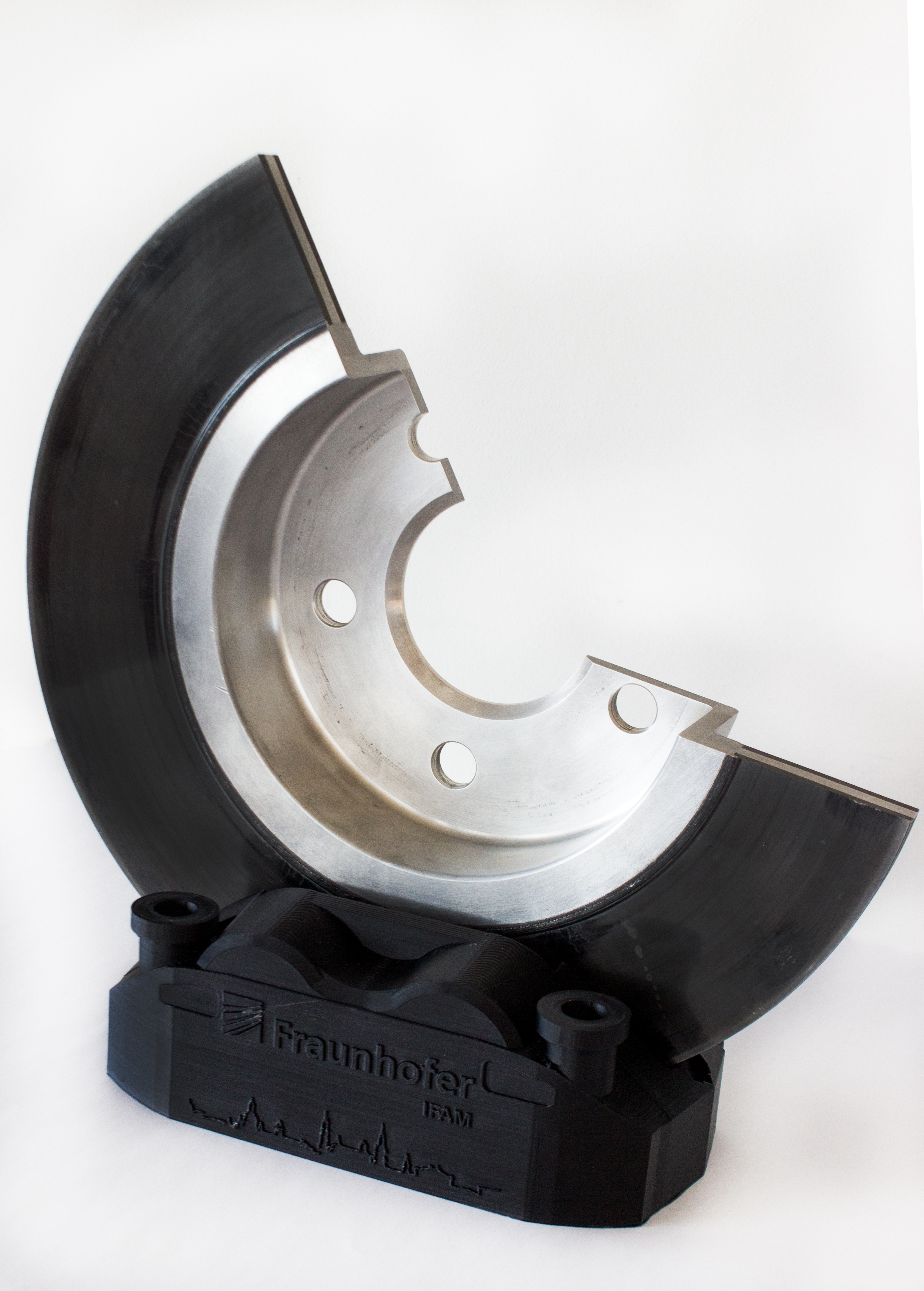Pure deceleration - new materials for brake disks with (almost) no particulate emissions
Worn brake disks are not only unpleasant because they cause expensive visits to the mechanic. The particulate emissions produced have been proven to be massively harmful to our health. Fraunhofer IFAM in Dresden is developing wear-resistant brake disks made of ceramic-reinforced light metal composites that not only save weight, but also cause hardly any additional costs over the vehicle's service life. The market launch is now within reach.
Lightweight and wear-resistant
Abrasion from the wear and tear of car brake systems currently accounts for 20 % of particulate emissions in traffic. Due to the serious effects of fine particles in particular on our health, the EU is significantly tightening the permitted release of such particles with the updated emissions directive (Euro 7 standard). One way of reducing wear and, thus, complying with these emission values is to coat the gray cast iron brake disks currently in use. Current solutions are not only expensive, these brake disks are also still very heavy, which reduces the driving range for electric vehicles in particular.
Fraunhofer IFAM in Dresden now has a solution to this problem. Together with partners, the institute is developing a sustainable, resource-saving and abrasion-free lightweight brake disk with adapted brake pads. This brake made of ceramic-reinforced light metal composites will be suitable for private transport as well as for selected applications in rail transport and for trucks. The entire system of brake pads and brake disks is nearly wear-free, which not only reduces the release of particulate matter, but also makes regular replacement of the brake disks unnecessary and massively reduces the number of brake disk changes. This not only saves the owner money, but also energy and resources for the production of spare parts.
In addition, Fraunhofer IFAM and its project partners are optimizing resource and energy efficiency from the production of the raw materials to a recycling strategy. The weight of the new brakes is at least 30 % less than that of the gray cast iron brake disks currently in use. The reduction in vehicle mass, especially unsprung, rotating mass, leads directly to a reduction in CO2 emissions and at the same time improves driving dynamics.
The market launch of this innovative system is now within reach. It may be possible to buy the first vehicle equipped with this system as early as 2030.
Last modified:
 Fraunhofer Institute for Manufacturing Technology and Advanced Materials IFAM
Fraunhofer Institute for Manufacturing Technology and Advanced Materials IFAM
